all of the selves we Have ever been
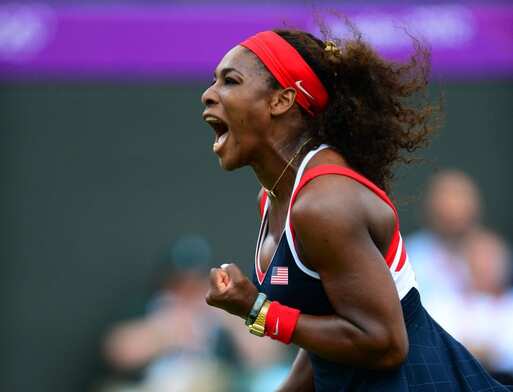 I am feeling weepy today. Serena Williams will take the court at the Arthur Ashe stadium this evening. It is possible that this will be the last time she participates in the U.S. Open or any professional tennis match. Though she dislikes the word “retire,” Serena told Vogue magazine that she is “evolving away from tennis” to grow her family and her business interests. Just shy of her 41st birthday, Serena is a 23-time grand-slam champion. Even though I don’t know much about tennis, I do know that is a remarkable record. And while I have no money on the game, I am rooting for Serena to come out on top at the Open. I want to see her go out in glory. I was in high school in 1973 when Billy Jean King took on Bobby Riggs in the Battle of the Sexes. It seems ridiculous today that that tennis match was such a big deal, but women’s sports and women, in general, took a back seat to men. It was not long after Billy Jean King won that match that I graduated from high school and went to work in an office. What we would call sexual discrimination today was the order of business back then. I remember young women law clerks being told that a woman would never sit in the board room or new female associates being told that if they were thinking of having children, they could kiss their careers with the firm goodbye. Young women of that era worried constantly about their weight as they squeezed themselves into short skirts and high heels, served the coffee, picked up the boss’s dry cleaning, and typed the boss’s kid’s term papers. Women made little money because it was considered pin money: “Buy yourself a nice dress,” money. Leave the real earning power to men. We did what we had to do, and thankfully, we tossed an evolving, improving world to the next generation. Serena caught the ball and hit it farther than any woman of my generation, white or black, could have imagined. She is beautiful and powerful in a way that the ancient Greeks and Romans would have memorialized in statues. Her spirit is indefatigable, and she is a force that transcends envy. One can only feel awe. So, I am cheering for Serena today. Do it for yourself, Serena. Do it for all of us. And do it in the Arthur Ashe Stadium, the namesake of another tennis great who dared to pick up a racket in 1949 and changed the rules of the game. The wheels turn slowly. Some of us push, others drive, and then there are the exceptions, the few who fly. Many of us fought the good fight. We are coming to the finish of the race. You help us to keep the faith, Serena. Show ‘em how it’s done.
0 Comments
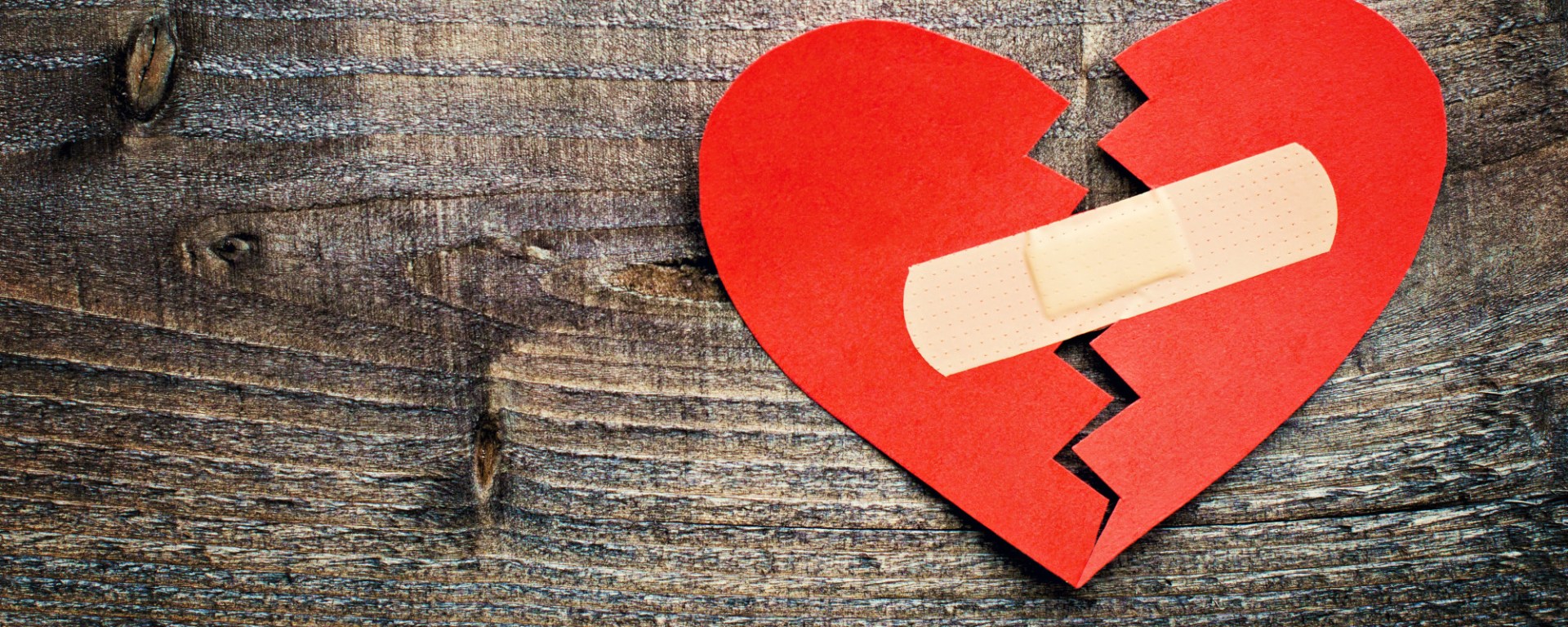 A few weeks ago, a friend of mine suffered sudden heart failure while dining out at a local restaurant. It happened just before the peanut butter pie was served. In what can only be explained as divine intervention, a physician, a navy medic, and a retired cardiac-care nurse were also dining at separate tables in the restaurant. They came to my friend’s aid. In their frantic life-saving efforts, a couple of my friend’s ribs were broken. That was a small price to pay for restoring life to this happy, much-loved, vital woman just a few days short of her 45th birthday. My friend later learned that the restaurant patrons gathered in a circle to pray as the emergency squad drove her away to a nearby hospital. Everyone was shaken. And moved. It is a powerful thing to watch life leave a person, and it is an equally powerful thing to recognize the awesome power in our hands to restore life, to feel the formidable responsibility for the ongoing existence of another human being, to see our hands as life-giving tools--a spark of the divine in each of us. In this time of growing hatred in which too many people are preoccupied with sucking the life out of each other, it is inspiring to learn of a situation in which good hearts responded without hesitation to breathe life into a stranger. It did not matter my friend's political persuasions. All any one needed to know was that she was in trouble and every second mattered. It was a heart-to-heart decision. Humanity and decency prevailed. When there is no one to mock us or create doubt in us, our good hearts are stirred to do the right thing because life matters--to us and to each other. My friend received outstanding cardiac care at the hospital. Chalk one up for science! She is now the recipient of an implanted defibrillator that will provide electric current to power her good heart should it ever again go out of rhythm. I think we could all use a defibrillator to shock us now and then, restore our good hearts when they are out of whack. Plug us in. Bring back this transformative power to the people. May the beat go on. 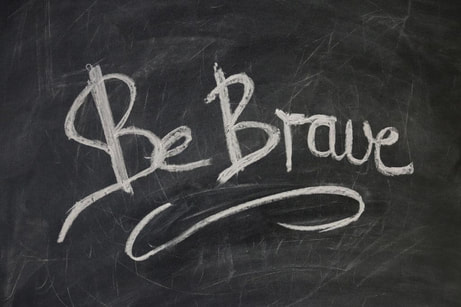 Ever have one of those days? You wake up and you’re already tired? And then a stink bug lands on your face, and you slap yourself in the eye as you leap out of bed, tearing a toenail in half from sudden hard contact with the bed frame. You go for a morning jog and your bra strap breaks. One of the girls gets loose and you take a left uppercut to the chin with every stride. Instead of the runner’s high that typically fuels your day you find yourself miserable, praying to make it home before there’s a full knock out. Starving, you pour your cereal only to find that there is but a teaspoonful of milk left in the carton, and you rue the day you became the Restocker-in-Chief. Disgusted, you skip breakfast even though your stomach grumbles that you are making a big mistake. Everything about this new day screams: Retreat! And yet you soldier on. You step into the shower where the full-on hot is barely warm. You get yourself and the children out the door. Everyone has their bags, their folders, their lunches, and their signed permissions slips. Your note says: Get milk. You endure the traffic and the road construction while fretting over that darn tire pressure light glaring at you. The first to arrive at work, you switch on the lights and make the coffee. You turn on the computer and are faced with a technical difficulty. The bot chat proves worthless. You get to a customer service rep who you know is reading from a script. Before you are completely hypnotized by the repetition, you try to come up with your own solution to the problem, something that won’t involve job loss or prison time. The day wears on. You stay on the job, and the work gets done. You provide for your family, and you help a few strangers along the way. There will be no extra credit for all of the terrible things that you thought about but did not do. You did not leave your litter on the running path. You did not explode in a fit of road rage at your fellow rush hour travelers. You did not ridicule the customer service representative. You did not quit. In life, it is the small things that break us, and we never know what sorrows or fears are in the bags of our fellow travelers, the things that leave them too short on strength to take on all of the small stuff. We underestimate and undervalue the everyday bravery it takes to endure so many small things. Now some may say that is too negative. They may see the empty milk carton as half full, and perhaps it is they who left it on the shelf, but it is the person who is sure that the carton is empty and who stops at the store to replace it that is both a realist and an optimist. There will be milk tomorrow. With advancing age, I have come to realize how much everyday bravery it has taken to get me to where I am today. Now, when I see people receiving awards, I think about their talent for sure. Maybe it is beautiful writing that results in a Pulitzer Prize. And then I think of the editor who perfected every sentence despite the whining of her stable of writers, and the lowly intern who read the first draft from a mile deep pile of submissions and recognized that he had found something special, or the secretary who answered a hundred calls from impatient submitters, or that maintenance man who came to work in a snowstorm and turned on the lights, or the typesetter who chose the font and made the book real. In the background of all of their lives, there were sick children, aging parents, past-due bills, major disappointments, a myriad of small obstacles. And no awards. Self-help gurus advised us long ago not to sweat the small stuff. Easy for them to say. I am pretty sure that the world keeps turning and the winners keep winning because of the farsighted courage of all the quiet and sweaty people who faced down the small stuff. 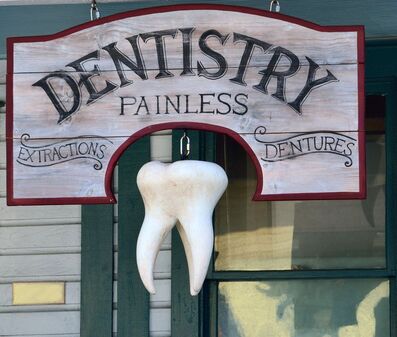 Some might think I learned about breath work and meditation in graduate school on my way to becoming a mental health therapist, but that is not so. I invented those calming techniques in a dentist’s chair when I was eight years old and having a tooth drilled without benefit of Novocain. I am not sure if filling teeth sans Novocain was a practice typical of the times or if our family dentist just enjoyed inflicting pain on children. To further confuse my young mind, I was growing up in the Catholic Church where pain and suffering could put a girl on the path to sainthood, and so I assumed I was to “offer it up,” though it seemed like an unnecessary dose of redemption for a girl barely past her First Communion. But yesterday I went to the dentist to have a crown placed on a tooth that recently had a root canal, and I abandoned the fold for a new religion. I suspect my current dentist may be the Buddha. So calm and spirit-filled is my dentist that he might as well enter the treatment room on a cloud. No matter the time between visits, he remembers the names of each of my grown children and accurately recalls that it has been nine years since he last saw my daughter who now lives in another town. When this doctor asks how I am and what my problems might be, he is fully present and listens attentively, a better therapist than me. Throughout a procedure, he repeatedly checks on my comfort. Nowhere else in the world do I feel as seen and heard as I do in his office. My dentist works patiently and attentively sculpting my new tooth for a perfect fit. Like Michelangelo, his artistry inspires a sense of awe. Relaxing into his quiet confidence and competence, I meditate on a silent rendition of the Broadway tune “Nothing’s gonna harm you, not while I’m around.” Were my heart to stop beating or my head to explode, I imagine that my dentist would simply place his skilled, gentle hands upon the broken parts and magically put them all back together again with his touch. Unshaken, he would quickly get back to placing my crown. While I may feel like the only person in the universe when I am seated in my dentist’s chair that scenario is far from the truth. He is a very busy man and somehow stays on schedule with the many other patients filling chairs in other treatment rooms. Yet, he never appears rushed and never makes me feel that I am wasting his time or that I need to hurry it up. With three office locations and a young family, my dentist still finds time to travel the world bringing smiles to children who have little to smile about—an international tooth fairy of sorts. When I was a small child, I believed in the tooth fairy as much as I believed in God and the saints. I imagined a benevolent, magical being, an angel-like specter who, for some strange reason, loved gathering teeth. She loved it so much she paid me for mine. For me, lost teeth were the evidence that I was growing up. Perhaps the tooth fairy presented this evidence to some heavenly court. Maybe that is how God keeps track of his children. I believe in a new tooth fairy now, a more age-appropriate one. And even if those permanent teeth I grew as a child test the definition of permanent, there is a new magical character who takes away my broken and aching teeth. He does it while I am awake, and I leave him the cash. There has been some price inflation since I was a kid, but this tooth fairy is so wonderful that I don’t mind. I hope that the exchange helps to pay for the smiles my Buddha-dentist-tooth-fairy brings to poor, hurting children in far-away places. Maybe that, in some way, makes me part of the magic, too, a form of redemption I can buy into. Kahlil Gibran wrote that “work is love made visible.” He must have known my dentist. I am not so poetic. All I can say is “Back at you, Doc!” 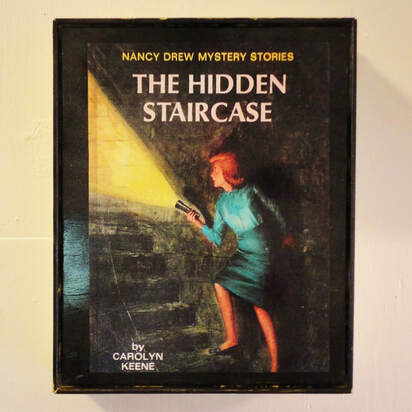 “We seldom leave places we understand.” I came across that quote during my morning time of prayer and reflection. It is from the early works of the psychologist Jordan Peterson before he fell off the deep end. Those words sink in; they explain a lot. No wonder I am a wanderer. I never know what the hell is going on. On the outside, I am a focused, tea-drinking, worker-bee. I miss the scoop to be had at the coffeemaker, the closed-door gossip sessions, and the after-work drinks at the bar. I have a quiet, orderly, and rich interior life; the outside world can be so loud, chaotic, and mean. With the added layer of social media, I sometimes feel that words have become a spray of bullets from an automatic weapon. I try not to travel extensively in that world. And so, it all remains a mystery to me. Perhaps that is why, as a school-age girl, I was so taken by Nancy Drew, and why I love her to this day. She loved a mystery, and there was nothing holding her back. In 2020, the year of the pandemic, Nancy Drew turned 90. Since the world was preoccupied with a mysterious new virus, Nancy’s birthday did not get the attention it deserved. If only someone had put Nancy Drew on the case…If only her father had won the White House, we’d know where and how this pandemic got started. For nine decades, Nancy Drew has remained a teenager. Detective work aside, one would think that many years of adolescence would exhaust anyone, even a super-sleuth. I suffered four quick years of high school. That was enough. Why anyone would do it for longer remains yet another mystery to me. I try to imagine Nancy Drew, the idol of my youth, growing older, getting old. Would she have survived to the age of 90? Survived the pandemic? Would she still be driving? If so, would she still favor a sporty blue convertible? Would she color her hair or proudly flaunt the gray? Would Bess and George still be her best friends? Would any of them be married? Divorced? Have endured breast cancer or other health crises? Would they have become parents or grandparents? Would they still be rocking sweater sets and pearls? And what of Nancy’s boyfriend, Ned Nickerson? Did he graduate from Emerson College, or did he get drafted and shipped off to Vietnam? If so, did he survive the war? Did Nancy and Ned’s relationship survive the Women’s Movement? Did they ever marry? Did Nancy’s mind remain active, clear, and clever? How did she cope with the changes of aging? Was she ever lonely or sick? Did she have regrets? What was it like for her when her father retired? After he died? Did Nancy remain faithful to the housekeeper, Hannah Gruen, as Hannah got older? What happened to River Heights, Nancy’s hometown? Would Nancy have solved mysteries at Wal-Mart? Shopped at Bed, Bath & Beyond? Would she have cursed the increasing traffic on those old, familiar streets? Did any creepy mansions remain with secrets left to expose? Did Nancy remain able to live on her own into her eighth and ninth decades of life? Or did she move into an assisted living facility or require a skilled nursing home? What mysteries might she have found in those places? Did she still find the answers to everything? It is difficult to imagine Nancy Drew grown old because I am young when I think of her. As a child, Nancy Drew allowed me to forget about my own life and enter hers. While I remember many of the book titles, I don’t remember too much about the actual mysteries. What stayed with me? Her spirit and her lifestyle. She was free to gravitate to what interested her. She was not weighed down by life and chores and homework. She was not limited by age. Adults sought her help and advice. Nancy’s lawyer- father trusted her, and Nancy was the one to look after his safety. Nancy had company in her adventures; she had resources and encouragement. Nancy Drew fed my hunger for an interesting, active life. I am not alone—Hilary Rodham Clinton and Ruth Bader Ginsburg are among the many gals who took Nancy Drew as a role model for smart women. But Nancy wasn’t just smart, she was self-assured, the quality most lacking in children, teens, and women of my generation. Nancy was free of all bondage and baggage. She didn’t just try to solve problems, she went looking for them. Try as I might to imagine it, my mind resists the image of an aging Nancy Drew. I prefer her gumshoes to my orthopedic shoes. It was never in the program for her to become more like me. The real mystery was how to become like her. She was an early female superhero. Her superpower was helping young women to believe in themselves. I really don’t want to see Nancy Drew in the nursing home—unless she is there to bust me out. We’ll go to a garden patio and eat dainty sandwiches and drink tea served from a silver tea set. We will discuss missing figureheads, missing grandsons, and missing violinists, spooky mansions, and our suspicions about the traveling circus. We will find the lost sheet music, the stolen statues, and the hidden wills. We will pour over the mysterious diaries and ominous notes. We will not be deterred by cryptic warnings of danger. We will live on—smart and self-assured with good friends, a swell car, the right clothes, and no homework. And always, always, always--we will fight for what is right. Nancy Drew can see what the world cannot. It is no mystery to her that there is still a teenage girl in me.
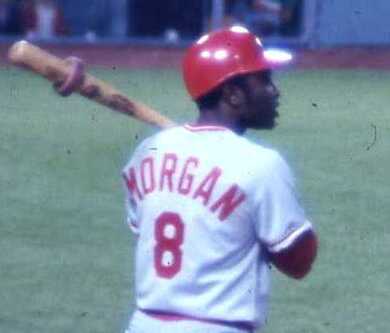 Joe Morgan died this week. The headline popped up on my web browser home page. There are some who looked at that headline and said, “Who?” Others may have seen the news and thought, “Who cares?” Me? I was pierced by sadness. I immediately emailed my best friend from high school with the news. I knew she would understand. They were young, and so were we. They were major league baseball players. We were high school students. They took the field. We took our seats in the stands--as often as we could. We were all in the middle of something. My friend and I lived in Pittsburgh. We were Pirates fans. The 1970s was a great decade for baseball in the tri-state area. The Pirates and the Reds were both powerful teams and fierce competitors. It was the Lumber Company versus the Big Red Machine. We watched the greats like Roberto Clemente, Willie Stargell, and Bob Robertson go toe-to-toe and bat-to-bat with Joe Morgan, Pete Rose, and Johnny Bench. When the Reds came to town, it was guaranteed excitement. Sometimes the heat of competition spilled over into a brawl on the field. Joe Morgan was particularly memorable. Stepping up to the plate, bat in hand, his back arm bent and flapping like a wing, Joe was part eagle about to take flight. His stance was twitchy, like the ball was already out of the park, and Joe was late for his date with home plate. My friend and I saw a lot of games. We saw many young men hurl their first major league pitches and step up to the plate for their first swing at bat. Not all of them rose to greatness in the history of the game. Not all of them stand out in our memories. Some, like Joe Morgan, became legends. We are moved by their passing. My sadness today leaves me to ponder the question—Why? Like the millions of stars that fill the night sky, it is only a few that reach us with their brilliance. They beckon us to look up. Fans are stargazers. They know where to look in the night sky. They study the stars, count them, and give them their names. We were witnesses to their lives. We clapped and cheered, game after game, as all of those games added up to something remarkable. We watched our heroes transform from youthful rookies into seasoned veterans even as our own youth slipped away. Their lives and careers became mile markers on our personal journeys and pages in our collective history. They belong to us and to our national treasure chest. Like so many of the balls he hit, Joe Morgan has left the park. Like the stars, his brilliance lives on. I will think of him each time a rookie steps up to the plate and an umpire cries, “Play ball.” 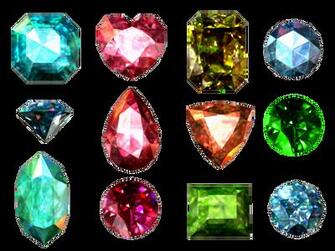 We’ve been robbed, and I am in a mood. I can’t shake my sorrow, and election season is making it worse. Maybe you feel it too? While we were pre-occupied with tweets, posts, trolls, and conspiracy theories, the vault was being emptied. It was not the work of gangsters. No Al Capone. The heist was made through billions of keystrokes. The jewels are gone. There are no more national heroes. And who can we blame? The clever thieves made accomplices of us all. The larceny has been in progress for many years, coming to light only recently when cancer took the last of our champions. The day John Lewis died I was stabbed by a profound sense of loss. I sat glued to the TV screen the way my parents did the morning John F. Kennedy was assassinated in Dallas, or on the evening Martin Luther King, Jr. was gunned down in Memphis, the way my colleagues and I did the day the Challenger exploded over Cape Canaveral. My grief was most certainly about the loss of a single great man. But it continues for the cultural loss of greatness. I see no galloping horse on the horizon. Even during a pandemic and economic collapse, no voice emerges. Among the unrelenting throngs of protesters, no leader stands out. I also grieve for children who grow up without any heroes, without people who embody our collective conscience and our dreams. Where do children look for examples of principle? Where do they find daring people who inspire others to noble action through great vision, thoughtful words, and profound ideals? What does it mean to grow up with no one to believe in? Over the years, biographies have given way to pathographies. We seek the salacious details of the lives we inspect and then crucify the subjects when we find the evidence. Traditional and social media are both quick to spread the word. There is no longer a clear distinction between legitimate news and gossip. Each outlet strives for the sensationalism that will increase shares, followers, and advertising dollars. But where can we find a perfect specimen? Human beings are flawed. That is the moral tale of creation. Heroes, by definition, rise to greatness in spite of their imperfections. They live within the constraints of their moment in history. Even our mythic heroes have their weaknesses. Superman has kryptonite; Batman won’t maim or kill; Spiderman struggles with his grief and intense emotions. It is the manner in which they surmount their imperfections that makes them admirable. Moses was more than his speech impediment. Abraham Lincoln was greater than his bouts of depression. Martin Luther King, Jr. was reported to have had extramarital affairs, but he was on a brave, non-violent quest for justice and the Beloved Community. John F. Kennedy had wealth, privilege and women, too, but the possibilities of life were expanded by his calls for civil rights, public service, and space exploration. None of them were perfect, but each of them made all of us want to be better. We seem more concerned with fame, but famous is not the same as heroic. Never have we been more confused. Some who become famous are dangerous. They have no saving grace save for the lessons they teach us about evil or greed. They need to be exposed, but, typically, they expose themselves through their words and deeds. We have become obsessed with these individuals, driving up their popularity and wealth by spreading their words and images. A following may be the new measure of success, but having a following is no guarantee of worthiness. And success in business along with its accompanying wealth, fame, and power is no guarantee of greatness either. Just look at the giants of the tech industry who recently came under scrutiny: Amazon, Apple, Google, Facebook, and others. We all sacrificed mightily for their successes, our privacy and security are not the least of our contributions. No single political party invented mob rule; social media, the industry of shame, did that. Despite the wealth, fame, and power of these men, do you believe their interests are your interests? You may be willing to follow them to the bank, but would you follow them into battle? Or across the Edmond Pettus Bridge? Heroes don’t set out to be famous or rich. They set out to be of service, to do what is needed, to stand up for what is right. Heroes leave an inheritance, but not one we fight over. They leave us with something to fight for. We’ve been robbed. Unfortunately, the police are very busy right now. We are on our own to find the jewels. It is up to each of us now. Thankfully, John Lewis left us some clues. A spirit of peace and the power of everlasting love will be our guide. We will recognize the jewels by their philosophy and discipline, their moral courage to stand up, and speak up. They might look ordinary, but their vision will be extraordinary. They do not toy with the truth, a truth revealed by history. They answer the highest calling of their hearts and stand up for what they believe. They have laid down the heavy burdens of hate. Perhaps, the jewels have been hidden in my home or yours. Maybe our children have them. The gems may be at the office, the grocery store, or at church. Fan out and talk to your neighbors. We need our jewels. We want them back. |
AuthorLilli-ann Buffin Archives
July 2024
Categories
All
|
 RSS Feed
RSS Feed